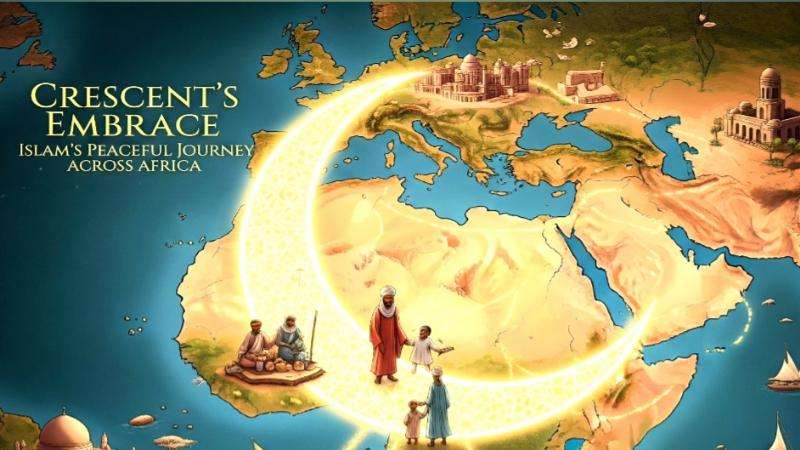The religious makeup of Africa is a story of two major faiths, Islam and Christianity, expanding from opposite ends of the continent. While Christianity, with a current population of about 697 million, has a strong presence in the south and sub-Saharan regions, Islam's historical and ongoing growth, particularly in the north and west, has solidified its status as a defining cultural and demographic force. With an estimated 369 million Muslims in sub-Saharan Africa alone, the continent's religious future is closely tied to the continued spread of both faiths, Daily Dazzling Dawn understands.
The Historical Path of Islam in Africa-Islam's arrival in Africa wasn't a single event but a multi-faceted process that unfolded over centuries. The initial military conquests of the Umayyad and Abbasid Caliphates in the 7th century established Islam in North Africa. However, the subsequent spread into the vast sub-Saharan interior was largely a result of peaceful, long-term engagements.
Trade and Migration: The trans-Saharan trade routes were the most significant conduits for Islam's spread. As Muslim merchants from North Africa and the Arabian Peninsula traveled deep into West and East Africa, they brought their faith, culture, and legal systems with them. This process was not one of forced conversion. Instead, it was a gradual assimilation where African rulers and elites saw the benefits of adopting Islam. The religion provided a common framework for trade and diplomacy, connecting them to the wider Islamic world. Cities like Timbuktu in Mali became centers of Islamic scholarship, attracting scholars from across the globe and solidifying the religion's intellectual and spiritual presence.
Sufi Orders and Scholars: The role of Sufi brotherhoods and Islamic scholars was crucial. These religious leaders and mystics often traveled alongside traders, establishing educational centers and mosques. Their peaceful proselytization and ability to blend Islamic principles with local traditions made the faith more accessible and appealing to local populations. They helped to create a uniquely African Islamic identity, distinct from that of the Middle East, that incorporated pre-existing cultural practices.
The Rise of Muslim Kingdoms: As Islam took root, powerful African empires and kingdoms embraced the faith, further accelerating its spread. The Mali Empire, most famously under its ruler Mansa Musa, adopted Islam as the state religion. His legendary pilgrimage to Mecca in the 14th century showcased the wealth and influence of his kingdom to the world, further elevating the prestige of Islam in the region. Other major empires, like the Songhai and Kanem-Bornu, also adopted Islam, and their rulers often promoted Islamic law and scholarship, sponsoring the construction of mosques and libraries.
Modern Religious Demographics-Recent data from sources like the Pew Research Center highlight the dynamic nature of Africa's religious landscape. While Christianity currently holds the majority share in sub-Saharan Africa, the Muslim population is growing at a faster rate. Between 2010 and 2020, the number of Muslims in the region grew by 34%, compared to the 31% growth for Christians. This rapid growth means that the religious composition of the continent is constantly shifting, especially in countries with a roughly equal split between the two faiths.
Nigeria, for example, is home to the largest Muslim population in any single African country, with around 115 million followers, representing a near 50-50 split with Christians. This creates a pronounced north-south religious divide within the country. Similarly, the north-south divide was a key factor in the separation of Sudan into two countries in 2011, with the Muslim-dominated north and the largely Christian-majority south forming South Sudan.
While the continent is overwhelmingly Christian and Muslim, other religions have a presence as well. Mauritius stands out as the only African country with a Hindu majority, a legacy of Indian indentured laborers brought there by colonial powers.








.svg)

_7.jpg)
_2.jpg)
_6.jpg)